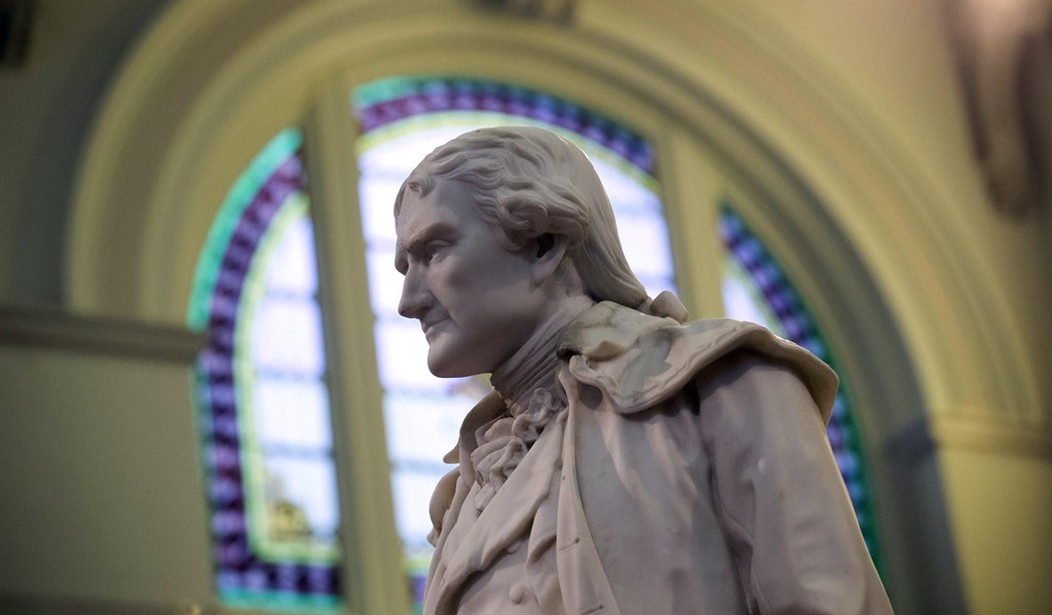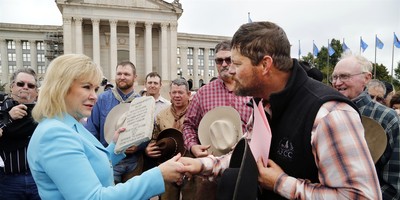Have Americans forgotten that freedom makes getting along easier?
We do not all have to like each other. We do not even all have to be nice to each other. We just don’t have license to hit or hornswoggle our fellows. Hate speech may be bad, but it is hate assaults — not talk — that should be punished by law.
This distinction, between talk and act, is important. One way to look at it is to accept it as a “hierarchy.” And when it comes to hierarchy, you cannot get more deep into it than in thinking theologically. Which is why freedom of conscience was so key to the development of a free society.
Most people throughout history have put a lot of trust and importance upon the topmost Person on any possible hierarchy, God. But, I’m sure you’ve noticed, people conceive of their God (or even gods) differently, using different names, attributing different qualities. And because of all the trust we place in our Differently Conceived Deities, we can get pretty riled when somebody differs from our theological views.
Which is where the logic of our Founding Fathers comes in.
“The legitimate powers of government extend to such acts only as are injurious to others,” wrote Thomas Jefferson in Notes on the State of Virginia. “It does me no injury for my neighbour to say there are twenty gods, or no god. It neither picks my pocket nor breaks my leg.”
What Jefferson did is rest his case on a very different hierarchy than Infidel/Heretic/Layman/Priest/God. Jefferson’s hierarchy depended upon the difference between Word and Deed. By whittling back the state to defense of rights to person and property, Jefferson’s idea — the old liberal idea, which now seems like a modern “conservative” idea — was to limit the number of issues over which we could rightly turn to violence. Either private violence or coercion by the State.
Recommended
In a free society we expect people to take their verbal lumps. But actual physical assaults? Those we go to court over. And in a mugging, or a robbery, those are what we draw out the knives and guns and clubs to defend ourselves.
We do not draw out the weapons if someone disagrees with us on God. Or Goodness. Or Gender.
Yes, this means that free people under a rule of law are at liberty to insult each other, call each other nasty names, even demean each other. And those insulted, besmirched, and dissed may return in kind. Or shrug the negatives off.
But we needn’t let it go at that.
Bill Ottman, founder and CEO of Minds.com, a Facebook/Twitter alternative that seems to be gaining some traction, reminds us in a recent essay that there is more than one way to skin a hate. When coming across vile nonsense or worse, “the most important question is how we deal with these situations,” he writes. We don’t need to go directly to war. We do not need to upgrade vile to violence.
And it is not as if we are defenseless even against expressions of hatred. “We may be able to find the answer in the work of Daryl Davis,” Ottman offers, “a famous blues musician with a hobby of befriending members of the Ku Klux Klan.” Ottman quotes Mr. Davis as saying that “Once the friendship blossoms, the klansmen realize that their hate may be misguided.”
Without ever burning a cross in a Klansman’s lawn, or burning down a house, or even siccing a lawyer on them, Davis made headway against hatred. “By having dinner with Klansmen,” Ottman summarizes, “he has inspired over 200 members to give up their robes.”
This shows that free speech is not defenselessness or “giving up” — for when speech is truly free, speech is itself a defense.
Thomas Jefferson put it philosophically, in terms of truth: “Reason and free enquiry are the only effectual agents against error.” That may be true. But even if it isn’t always true — even if sometimes there is no “effectual” way to prevent error from dominating the minds of many, even most people — we are left with the great benefit of allowing not only freedom of reason and free enquiry, but also the freedom of invective, ridicule, mockery, and dismissal. Why? Because free speech is the only effectual agent against terror.
When we are given free rein (or just special license) to police others’ thoughts and speech, we open up floodgates of social discord.
Which is what we are seeing, increasingly, today. When expressing “unacceptable” opinions on sex and gender, for instance, becomes cause enough for some folks to bring down the full weight of Authority in defense against “offense,” what we get is authoritarianism, and more hatred, and more conflict than at all necessary.
When we learn that being offended gives us no special license to compel others, provides no cause for a bike lock in a sock to the head, no excuse for raising a weapon, no actionable cause for a lawsuit or even a dialing up of 911 — when we give up all that, that’s when life in society gets easier. Not harder.
But it does require a bit of mental toughness. That’s not a defect, however. For we can be adults about this.

























Join the conversation as a VIP Member